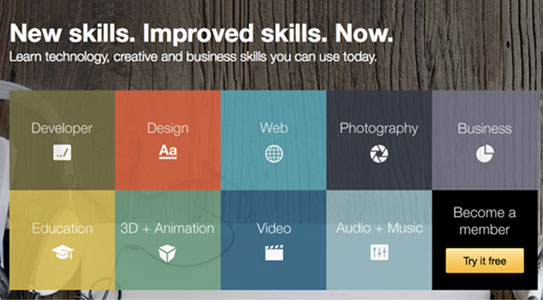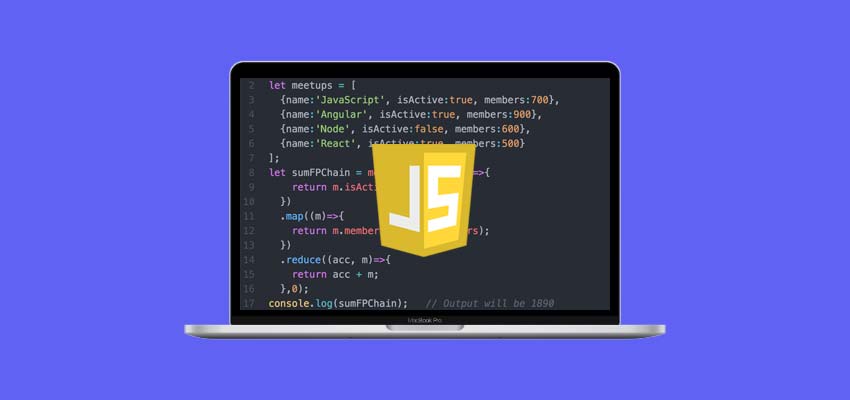There are a few things that separate worthy from great, a fine line among just getting through and being truly effective. This relates to almost anything, and especially web development.

More often, companies looking to build a website think about flamboyant visuals and fancy features. But when it comes to web design, it’s crucial to remember that a website is first and primarily a sales tool. For a website to be an asset to the business, it has to be effective. What does it mean? Your website needs to focus on a clear motive, attract more visitors and get them interested in your service or product.
Are you ready to create an effective website that produces leads and increase the growth of your business? So what do you mean by being effective in web development? What are the practices that you need to adapt to become great web designer? Let’s have a look.
1. Identify the Purpose

The most important point is to define a purpose. Before you get into awesome graphic design, you need to identify your site’s purpose. Are you trying to promote an e-commerce website, fashion website, hospitality website, rail reservation website etc.? Defining a purpose will help in keeping all the features of the web design on track. When users see a webpage, they want to ensure they are at the right place. A site designed with a clear and strong motive tells a cohesive story.
2. Working on Wireframes

Wire frames are designs of a web page having boxes on them displaying where each element will be placed on a page. Focus will not be on colors or text, instead on the most important thing, overall look of the page and how it will function, Effective web designers always use wireframes.
3. Easy Navigation

Visiting a new website is like discovering a new city. If you’re trying to locate a new location, the easiest way is to look for signboards that can guide you in the right direction. Same way visitors who are new to the website might be looking for signs which can direct them to the right page.
- Navigation Bar: The main navigation contains the main sections of the website. It should focus on the main products and services and should be easy to use.
- Breadcrumbs: These are those tiny back arrows that permit the user to go back to the previous page or section. These permit users to view each and every section into the website without getting lost.
4. Search Box

Sometimes visitors are not sure how to look out for particular information. Search box is the answer to it. Visitors can search any topic through search box and relevant page in the website will be displayed. Search box will allow users to access more easily sought content.
5. Keep the Text Short and Meaningful

Whether it’s through the main body content or headlines, text is the main way to communicate the message regarding website. Clear usage of words is essential to make the message understood to visitors, and succinct writing is key to confirming it is understood immediately. If the text is confusing or too long it becomes frustrated for the user.
6. Use of Call-To-Action

Call to action (CTA) is an order to the users to incite an instant response, usually using an imperious verb like “Chat Live”, “Find Out More” or “Visit Us today”. It prompts them to do something, whether to sign up, contact us, or take a trial version. Make sure that call-to-action buttons stand out on the webpage without being overpowering. Keep text short and simple but interesting which can attract the user to do the activity. This is an effective way to convert the visitors into customers.
7. Follow the Concept “Write Less, Say More”

Before designing the website, make a list of what to include and what to remove. Just because there is enough room for features like Twitter widget, a newsfeed etc. doesn’t mean it needs to be included in the website. With each feature image, sentence, button, link and widget added, first ask this question “Is this essential to my website? Is it strengthening my site purpose?” If the answer isn’t yes, then no need to include it.
8. Focus should be on First on Usability

While many web designers’ main aim is creativity, it’s important to never to ignore usability functionality. If the website is not user friendly, then it might be frustrating for viewers, which will result in bad business. The way users expect the doorbell to be near to the front door, web users expect websites to look and function a particular way.
9. Responsive Websites

It is a method for developing websites that can work on multiple devices like mobile devices, tablets and many more. Responsive web designing is a completely diverse designing form than traditional web designing in terms of technicality, and careful use of this can do wonders while designing and designers must know how to design one.
10. SEO Friendly Websites

Web designing and SEO are tantamount to each other. Making a site attractive only will not result in higher ranking higher in SERPs. Modern web designers need to learn, that with the right techniques used in SEO can do wonders for their website. Apart from making a website responsive, it should use a clear and logical URL formation, make sure web pages should load speedily and many more.
11. Use Eye Catchy Design and Color Scheme

It is very important to have a design as well as color scheme of a website such that it retains into the eyes and brain of the visitor. Also this factor plays an important role while making an emotional connect with the person who is visiting your site.
12. Use of Organic Shapes

To divert the attention of the view and look different yet attractive, organic shapes are used. These are the shapes that seems to more realistic as well as hand drawn. They give a feeling of some personal touch when someone views this find of graphic on the website. The perfect combination is that of organic shape as well as illustration.
13. Use of Animation to Attract User Attention

Animation now a days plays an important role in attracting the visitors. They let the users be on the particular webpage for longer duration and reduce the bounce rate of that page. Also animation are the best way to instruct users the functionality of a particular feature on that page. This makes the webpage interesting as well s appealing to the viewer.
14. Use of Compressed JavaScript and Jquery Code to Manage Load Time

Length of the code plays a very important role while loading a webpage. There is drastic change in the load time of the page when javascript and jquery code is minified or compressed. Though this code is hard for humans to read but it does not make any difference to the computer to read this compress or minified code.
15. Use of loader

Loaders or preloaders are used to make User Experience of the particular website better. It is something that is displayed while the content of the page has not completed the leading part. This plays a great role in keeping users engaged on the webpage and not let them bored while the content is loading.
Always remember, a website is a tool that can help bring in more business – if done in the correct way. Don’t concentrate too much on the animated logos and flashy backgrounds, instead emphasis on creating a site that helps users to navigate properly and find what they are looking for.
Highly effective designers are always inquisitive in nature. They always believe in reconsidering and refining the philosophy of design. They believe in the theory “Everything changes with time and we should also change with them”.
Do you have any additional tips for designing an effective website? Share with us in the comments below!
View Full Presentation on SlideShare: Responsive web design – Tips & Tricks
Responsive Web Design – Tps & Tricks from ADMEC Multimedia Institute



